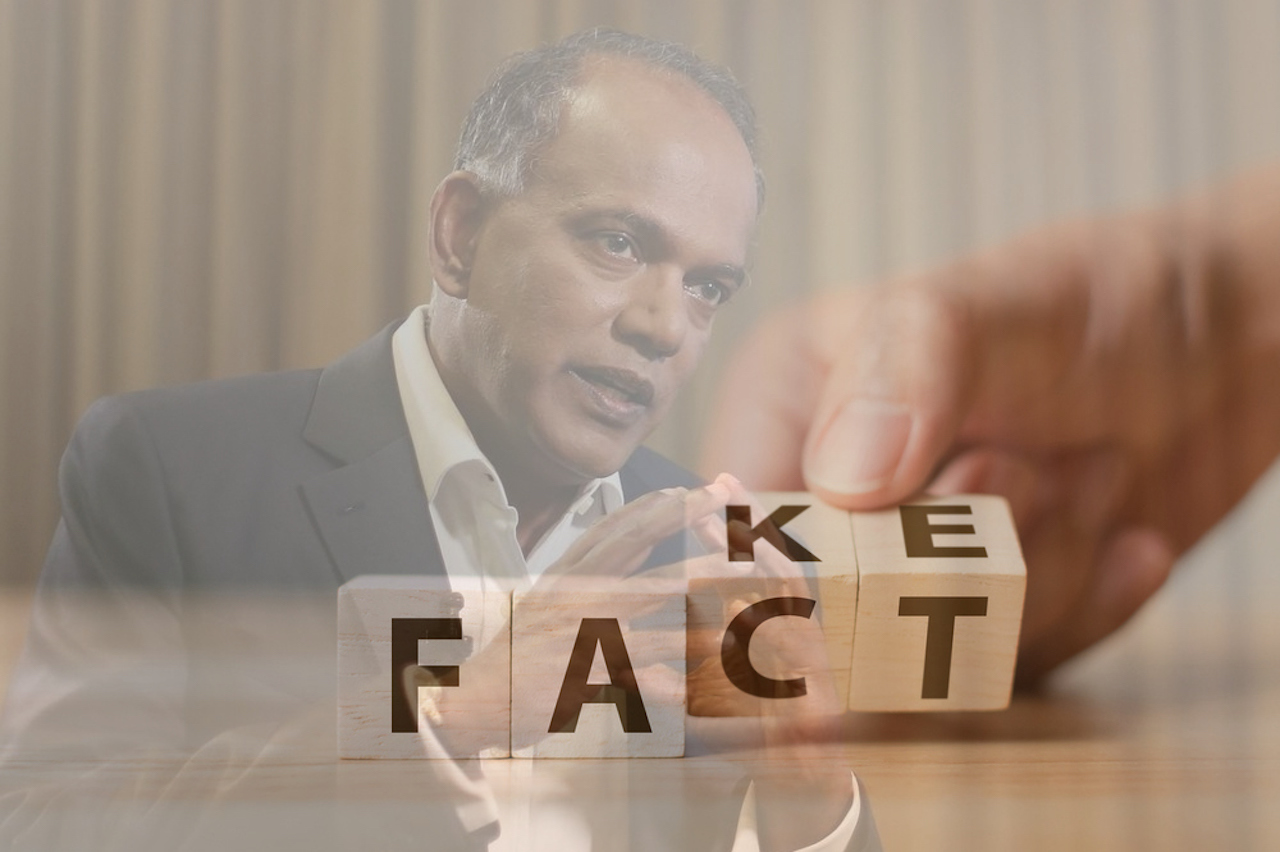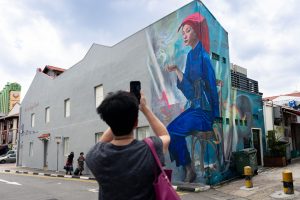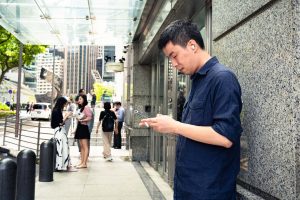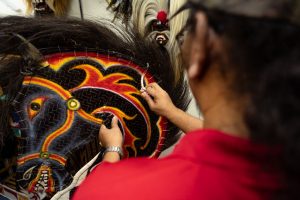In 2019, we are living in 1984. At least according to critics of the “Protection from Online Falsehoods and Manipulation Act” (POFMA) that was read in Parliament on 1 April 2019 for the first time.
According to Law Minister K Shanmugam, the government will get to make the initial decision on what constitutes falsehoods, but the courts will remain the “final arbiter of truth”. Following criticism that POFMA would shut down free expression, the minister reiterated that the proposed law would only apply to “false statements of fact”, and “not criticism, opinion, satire, or parody”.
But before we get into anything else, let’s cut the bullshit: POFMA is a direct result of actors who deliberately propagate irresponsible and malicious falsehoods under the guise of ‘free speech’—the States Times Review (now rebranded to the Singapore Herald) being a prime example.
Take also, for example, last year’s viral report in The Independent about an elderly hawker who allegedly passed away after working for long hours under NTUC’s social enterprise scheme. Investigations revealed that the report had been fabricated.
Where falsehoods are concerned, it may be easy to dispute a blatantly false statement of fact like ‘the sun rises in the West’. But few falsehoods are as clear-cut, and to understand how to deal with this, we need to understand the contexts and political climate within which such false statements can seem so compelling.
For instance, the report on the NTUC hawker didn’t spread because it was intentionally misleading or merely sensational. Its viral ‘success’ was aided by existing social and cultural sentiments; the false report played on our general sympathy towards the elderly, the unhappiness surrounding the welfare of hawkers, and the growing distrust towards the social enterprise hawker centre model by NTUC.
According to a viral piece by Makansutra founder, KF Seetoh, these hawkers also dealt with ‘unfair’ clauses in their contracts, including “paying the management $600 a month to have them spot check their food quality and operation”, “monetary penalties like in a food court model for closures”, and being “expected to open 8 to 12 hours a day (minus preparation time)”.
These prevailing conditions laid the groundwork for Singaporeans to believe that an overworked hawker had passed away due to the uncaring bureaucracy of a powerful corporation.
Faced with misinformation of this nature, and poor media literacy standards among Singaporeans, one might think that regulation is necessary.
Self-censorship can turn into learned helplessness.
While this may be a valid concern, I am more inclined to question the kind of environment—as well as the culture and government that cultivates it—that makes it possible for deliberate falsehoods to thrive in the first place.
Minister Shanmugam might have tried to reassure Singaporeans this isn’t the case, but the fact remains that POFMA’s chilling presence alone will be enough to stoke the culture of fear that already exists amongst Singaporeans.
And the main victims of this culture of fear will not be prominent, vocal activists or journalists who do their due diligence before reporting on controversial topics. Neither is this impulse to self-censor really reserved for drastic scenarios, such as Operation Coldstore or getting hauled up by the Internal Security Department (as much as these are the most acceptable reasons for fear).
Rather, it targets ordinary Singaporeans. It will also tend to manifest in smaller, everyday occurrences, such as deciding whether to withhold a political opinion online, choosing not to speak to a journalist about genuine problems within a public agency, or warning a friend not to vote for the opposition.
Many of us have heard stories where doing or believing in something ‘anti-establishment’, or that didn’t align with the government’s values, might have affected someone’s personal or professional life. In the end, people draw tenuous links, and accept that perhaps it’s better to just self-censor.
Over time, self-censorship can turn into learned helplessness. The result: people consciously silence themselves not just because they fear consequences, but because they fear that speaking up won’t make a difference.
This can, unfortunately, have a broader impact beyond restricting individual agency. After all, self-censorship is the enemy to journalism, especially if the industry believes in holding the government accountable.
It’s realistic to expect that self-censorship might make whistleblowers and marginalised voices less inclined to come forward.
First, any regular Singaporean who doesn’t have the privilege, time, money, or will to potentially contest the government in court may decide to stay away from journalism. Not just as a career choice, but as an interviewee.
Secondly, under POFMA, it’s realistic to expect that self-censorship might make whistleblowers and marginalised voices less inclined to come forward, for fear that a journalist may be forced to give up their source. As it is, reporters find it difficult to get people to go on the record or to gain their trust on sensitive issues; even reliable sources often back out at the last minute because they fear losing their jobs, gaining unwanted attention, or affecting their personal relationships.
Finally, POFMA has wide latitude, which could give ministers and agencies the power to request for corrections based on mere word choice. Because of mere connotation, what might be an innocuous word or phrase to a journalist might be misleading, and therefore falsehood, in the eyes of a minister.
An example raised by professor Cherian George in a blog post involves the Singapore government accusing Reuters of publishing a “fabricated headline”. Based on an answer given by Minister Chan Chun Sing, where he said, “All of us have to be prepared to do the job when called upon”, Reuters had reported that “he is prepared to become the next PM if called upon”.
So instead of throwing platitudes at Singaporeans and expecting us to believe the government has our best interests at heart, perhaps Minister Shanmugam should consider the social and cultural conditions that have eroded trust in his party over time. He should also reflect on how the government may have played a role in creating these conditions through both policies and leadership.
After all, people fear what they don’t trust, and fear is both the prime fuel for fake news and self-censorship. Neither are desirable outcomes in any kind of society.
When POFMA was first tabled, I was worried that it would make my job harder. A week later, I don’t think my fears are unfounded, although I’m less worried about unwittingly spreading a falsehood than having the far-reaching effects of POFMA affect the ease of speaking with people.
Still, while I don’t speak on behalf of anyone, allow me to quote American journalist John Moe to summarise my stance: “Anyone under the illusion that journalists will be frightened into silence has never met a journalist.”






